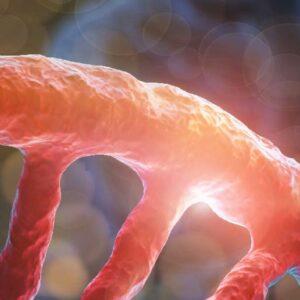OVERVIEW
WHAT IS CANCER?Cancer is a group of diseases characterized by the abnormal growth of cancer cells that lead to tumor development and can ultimately spread to other distant or nearby organs. Cancer is initiated from genetic alterations (changes in the DNA or mutations) that can either be inherited from parents or acquired sporadically during a person’s lifetime. Over time, the mutations accumulate resulting in the production of abnormal proteins which can cause healthy cells to become cancerous and can be responsible for cancer progression as well as therapy resistance.
Tumor profiling is a laboratory-based method which identifies mutations, genomic biomarkers (such as Tumor Mutational Burden, TMB; and Microsatellite Instability, MSI) as well as other molecules including proteins which can be responsible for cancer development and resistance to treatment. Different molecular profiling techniques, such as immunohistochemistry and genetic testing, can help in deep molecular characterization of the tumors either at the protein or the gene level.

IMPORTANCE OF GETTING TESTED
Tumor profiling allows for deep analysis of a tumor’s molecular characteristics that are responsible for cancer progression and therapy resistance. It can be the key to personalized cancer care as identifying the unique molecular characteristics of a patient’s tumor can lead to the most optimal as well as contraindicated treatment options.
Understanding the molecular profile of a tumor can expand the therapeutic opportunities of cancer patients via precision medicine, by guiding healthcare providers in identifying the best therapeutic approach tailored to each patient.

WHO SHOULD TAKE THIS TEST?
Patients who are diagnosed
with a solid tumor and
require pathological analysis
Patients who are diagnosed
with a solid tumor and
molecular profiling is needed
for personalized therapy

Patients who have resistance
to other therapies (e.g. chemotherapy) and
molecular profiling is needed
for personalized therapy
Patients who want to expand
their treatment opportunities and
want genetic testing for
novel immunotherapy biomarkers (MSI and TMB)
Patients who are diagnosed
with a solid tumor and
want to expand their treatment opportunities
by identifying eligible clinical trials
WHAT DOES TUMOR PROFILING TEST FOR?
Tumor profiling allows the investigation of genomic mechanisms involved in tumor formation, including microsatellite instability and fusion genes, as well as enabling investigation of tumor mutation burden analysis.
Microsatellites are repeated sections of DNA, 1-6bp long, that are found throughout the entire genome and account for approximately 3% of it. Due to their repeated sequences, microsatellites are prone to a high mutation rate. Microsatellite instability (MSI) is a cause of unique molecular alterations and hypermutated phenotypes. It is triggered by an impaired DNA mismatch repair (MMR) system, which frequently results from germline or somatic mutations or promoter hypermethylation of genes in the DNA MMR system, such as MLH1, MLH2, MSH6, and PMS2.
Determined as a predictive biomarker and can support the selection of patients who may benefit from immune checkpoint inhibitor (ICI) therapy. TMB is defined as the number of somatic coding, non-synonymous variants in the tumor genome per megabase and is associated with the development of neoantigens that trigger antitumor immunity.
Occur across a wide spectrum of tumor types. Gene fusions arise as a result of genomic rearrangements, including chromosomal inversions, interstitial deletions, duplications, or translocations, and can drive both the development and progression of cancer. Sequencing efforts have identified rare oncogenic fusions across several forms of cancer. Many of these fusions have proven to be viable targets or are the subject of promising ongoing research.
MEDICAL GENETIC COUNSELLING
We provide expert medical genetic counselling as part of a genetic testing journey. Genetic counselling is a process of communication that supports patients and their relatives before and after genetic testing. It is educational, impartial and nondirective. Prior to any genetic test, genetic counsellors will obtain a detailed family history, explain the method of testing that will be used, its risks and benefits, the limitations of the diagnosis and the implications of making a genetic diagnosis (Elliott and Friedman, 2018, Nat Rev Genet 19:735).
Upon receiving the genetic test results, genetic counselling can help the specialist physician and the patient to interpret them. They can be advised of the consequences of the results including the probability of developing the genetic disorder or passing it on to children, as well as ways to prevent, avoid or reduce these risks (Yang and Kim, 2018, Ann Lab Med 38:291). Our goal of counselling is to provide the patient with greater knowledge and thus, a better understanding of the results and the ability to make a more informed decision.








Histopathology and Genetics Detect&Act
● Histopathology and genetic test analysis
● Exome-based technology performed via NGS. To learn more please visit our product page.
● 1 Comprehensive tumor profile panel
● 12 Cancer-specific gene tumor profile panels
● 10 Targeted therapy tumor profile tests
● 9 Fusion gene panels
● Testing of immunotherapy biomarkers MSI and TMB (panel-applicable)
Learn more about Histopathology and Genetics Detect&Act.
ForeSENTIA tumor profile
● Genetic test analysis
● Proprietary target capture enrichment technology via NGS. To learn more please visit on our product page.
● 2 Comprehensive tumor profile panels: Pan-Cancer Plus and Pan-Cancer
● 6 Cancer-specific tumor profile panels
● 5 Gene-focused tumor profile panels
● Testing of immunotherapy biomarkers MSI and TMB (panel-applicable)
Learn more about ForeSENTIA.






















